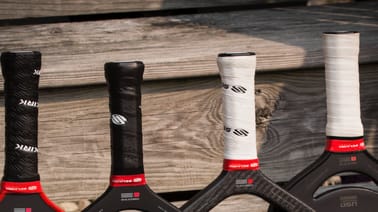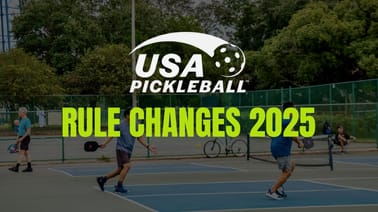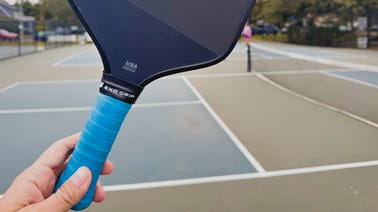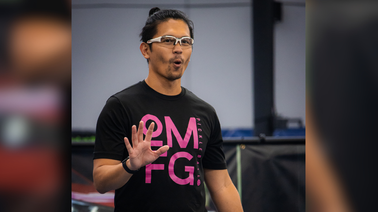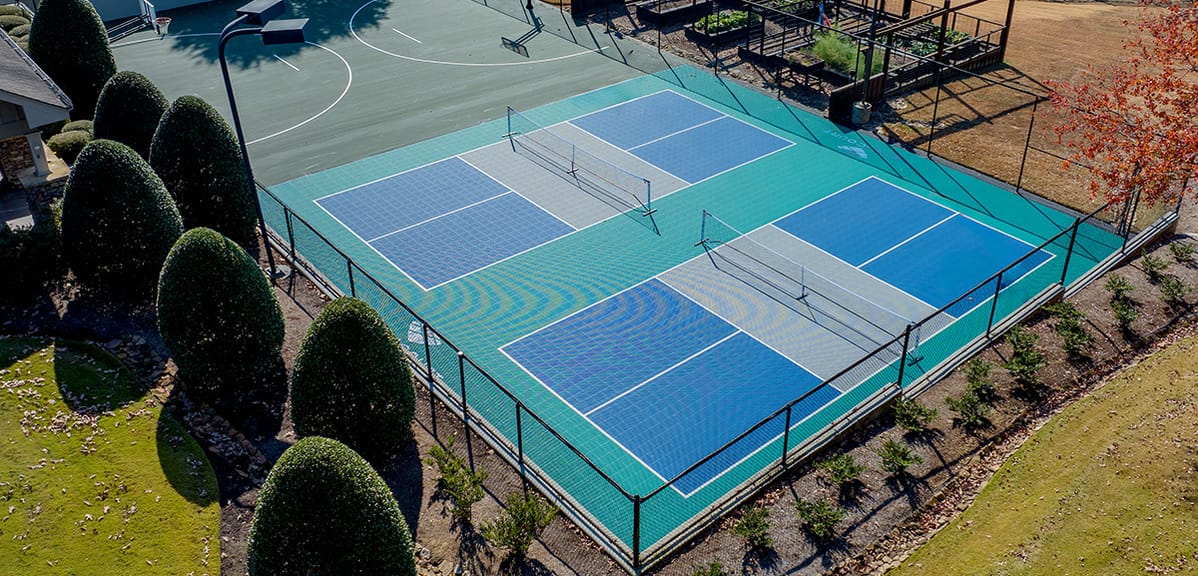
If you've spent any time playing pickleball at a local park, chances are you've spent a lot of time waiting on the sidelines dreaming about building your own private court in your backyard. No more paddle racks. No more wait times. Just hours and hours of dinking.
But what goes into building a court, and how much does it cost? Well, that's hard to say for sure as there are so many variables, but we'll do our best to give you a general overview.
We've also got a bonus tip for a more versatile and affordable option at the end of this article.
Step 1: Grading the Land
The first step is deciding where to build your court. Ideally, the site should be:
Level and Flat: A smooth surface is essential for proper gameplay. Any hills or bumps will need to be flattened and graded. Typically, you will need a base layer of stone with a 1° slope to allow rain to run off the court.
Plenty of Space: A standard pickleball court measures 20 feet by 44 feet for play area, but don't forget that you'll need extra space for fencing and player movement (plan for all those ATPs). It's recommended that at minimum your total area should be 30 feet by 60 feet but a gold-standard recommendation of 34 feet by 64 feet which is optimized for tournament-level courts.
If you have a unique space or specific dimensions in mind, using a court like VersaCourt can create a custom-sized court that fits your needs. Whether your yard is large, small, or somewhere in between, their team can design the perfect court for your home.
Grading Cost: $0.40 to $2 per square foot
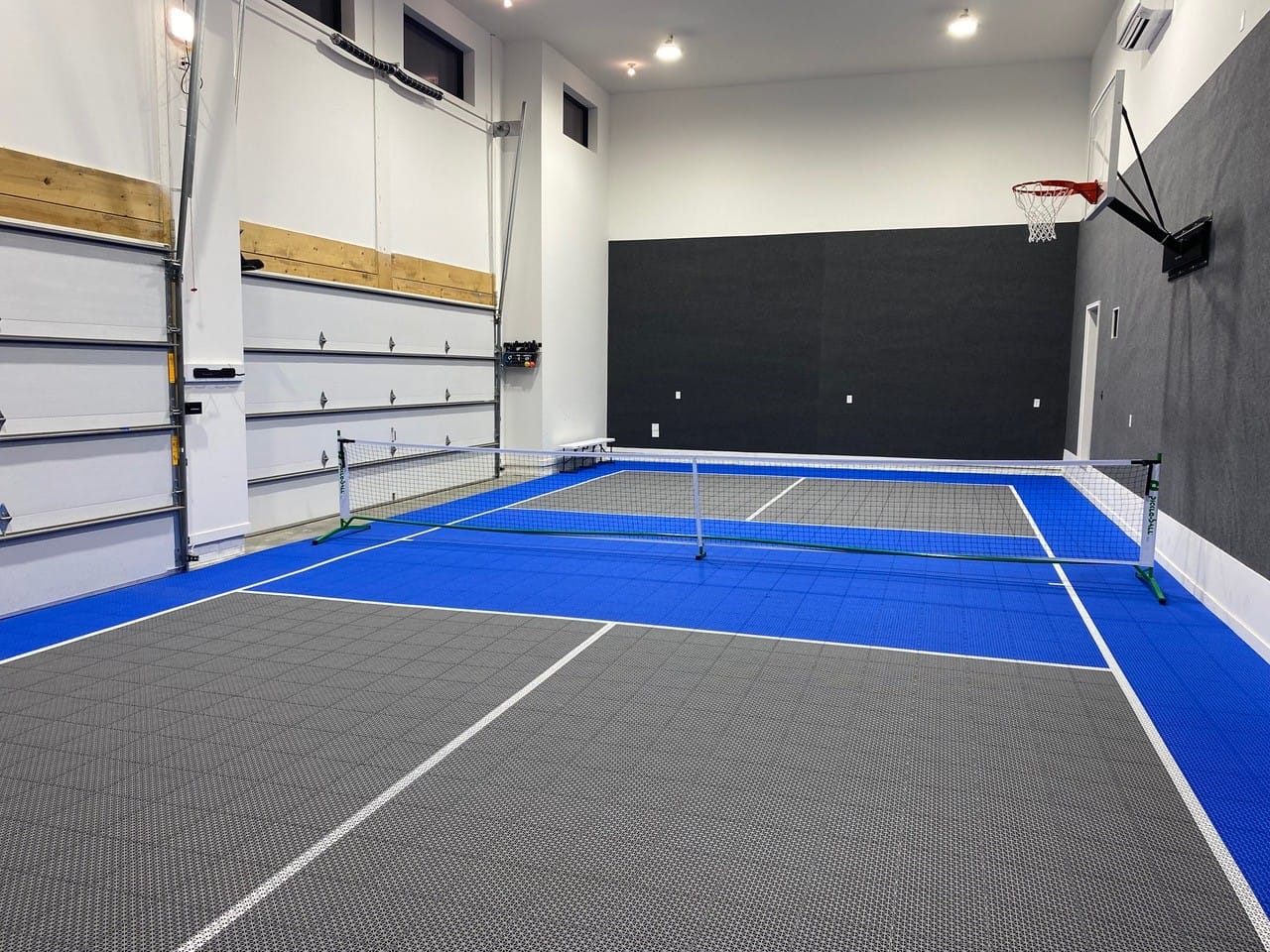
Step 2: Laying A Slab
The surface of your pickleball court must be durable and smooth. Typically, game courts use post-tension concrete to create a sturdy foundation. No matter which you choose, make sure to add a vapor barrier to prevent water from moisture getting into the concrete.
Rebar vs Post-Tension Concrete: Traditional foundations use standard tension concrete or rebar as their base. That is a fine option however a lot of game courts now use post-tension concrete where the embedded rods can be stretched after the concrete is set, applying around 30-40k pounds of pressure to prevent future cracking.
Approximate Cost: $15-30k (at $10 per square foot)
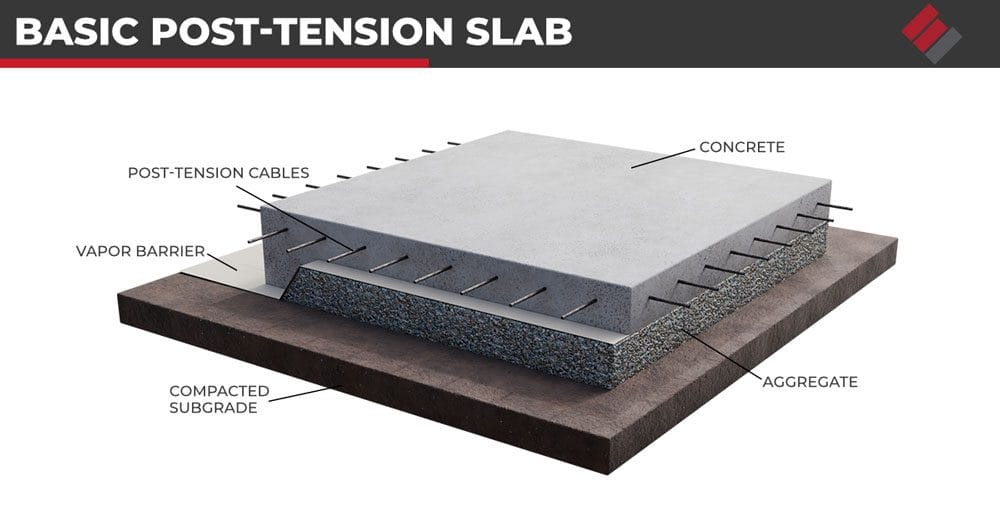
Step 3: Painting and Sealing
Pickleball courts use a special acrylic coating to paint the court, not your standard paint that's at your local hardware store. Standard colors include green or blue for the playing area and white for the lines.
Picking the right colors: It may be tempting to pick bold, vibrant colors for your court but that comes with a few downsides. Firstly, light colors can fade quickly and show stains and dirt much easier than darker colors. In addition, if your court gets a lot of direct sunlight, the reflection on those bright colors can make it hard to see the ball. Finally, the type of paint you will be using will have to be specially mixed to achieve custom colors which adds an unnecessary expense. So if you're looking to save some money in this process, I'd recommend going with the standard, darker colors offered by your painter.
If you want something truly customized, using an option like VersaCourt may be the way to go. They can personalize your court with custom logos, crests, or unique color combinations.
Adding Cushion: If you're using a concrete base, you'll want to add some layers of cushion to keep your joints happy and healthy. Most courts will add around two layers of cushion to create a softer surface for your feet.
Approximate Cost: $5-8k
Step 4: Picking a Net System
The net is a crucial part of a pickleball court. The cheapest and simplest method is to buy a temporary net which is easily set up and can be moved if you want to use the space for other activities. Permanent nets are more expensive but have better tension to prevent the ball from passing through the tape.
- Net Height: 36 inches at the sidelines and 34 inches at the center.
- Posts: Use sturdy posts to hold the net taut.
- Adjustability: Ensure the net can be easily tightened or adjusted.
Approximate Cost: $100-500
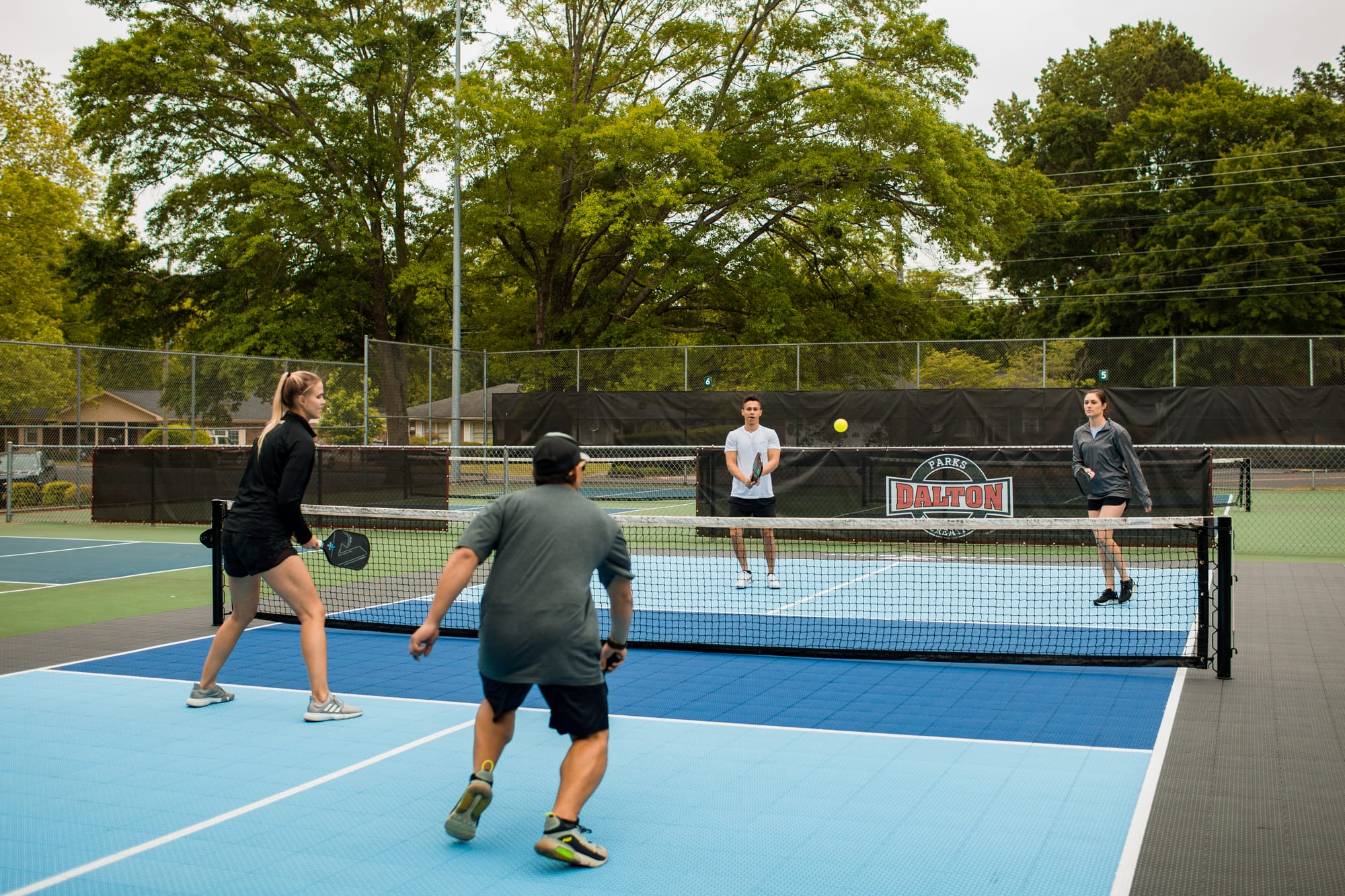
Step 5: Add Fencing and Lighting
It's tough to estimate how much you'll spend on fencing and lighting as there are a lot of aesthetic considerations. Nevertheless, here are some guidelines no matter what materials you decide to use:
- Fencing: Install a fence around the court, typically 10-12 feet high, to prevent balls from going out of bounds.
- Lighting: If you plan to play at night, install LED lights positioned at least 20 feet above the ground to minimize shadows.
VersaCourt offers energy-efficient LED lighting systems, including solar-powered options, to extend your playtime into the evening. These systems not only provide excellent visibility but also help reduce energy costs.
Fencing Approximate Cost: $9-30 a square foot
Lighting Approximate Cost: $1,500-$6,000
Step 6: Additional Features
These are optional expenses but probably worth factoring into your budget if you are choosing to put a court away from a main building:
- Benches or Seating: Provide a place for players to rest.
- Shade Structures: Protect players from the sun.
- Water Station: Keep everyone hydrated.
Total Cost Breakdown and Planning
Building a pickleball court can cost from $15,000 to $30,000, depending on materials, location, and features. We recommend consulting multiple professional contractors for estimates, as we've seen some really big differences in what people have been quoted.
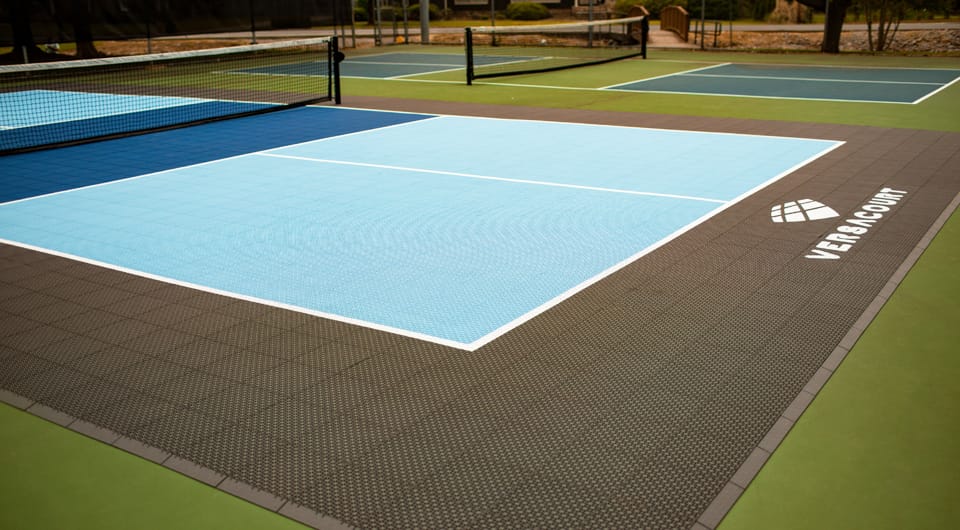
Bonus: An Alternative Option
When building a pickleball court at home, having the right tools and support makes all the difference. That’s where VersaCourt steps in. With a range of customizable options and professional-grade materials, VersaCourt can turn your vision of a home pickleball court into reality, offering everything from ready-to-assemble kits to custom-designed courts.
For a quick and efficient setup, VersaCourt offers two standard sizes of ready-to-assemble kits. These kits come in pre-painted colors and are shipped on standard concrete pads, so you can have your court up and running with minimal hassle. It’s the perfect solution for those who want a professional court without a long wait.
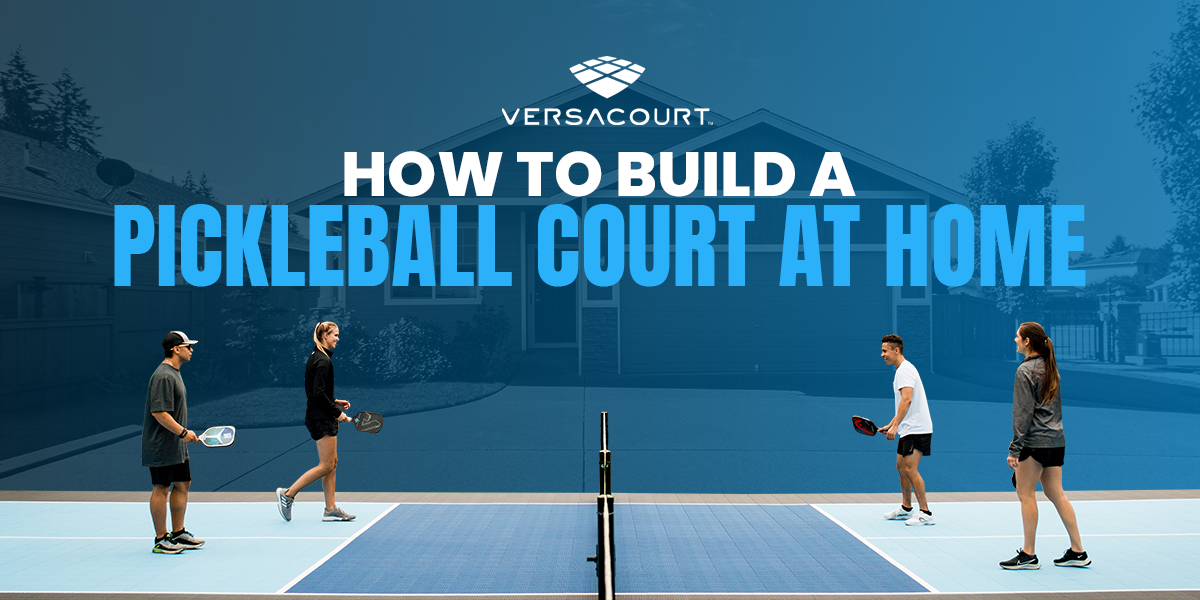
This article was made in partnership with VersaCourt




